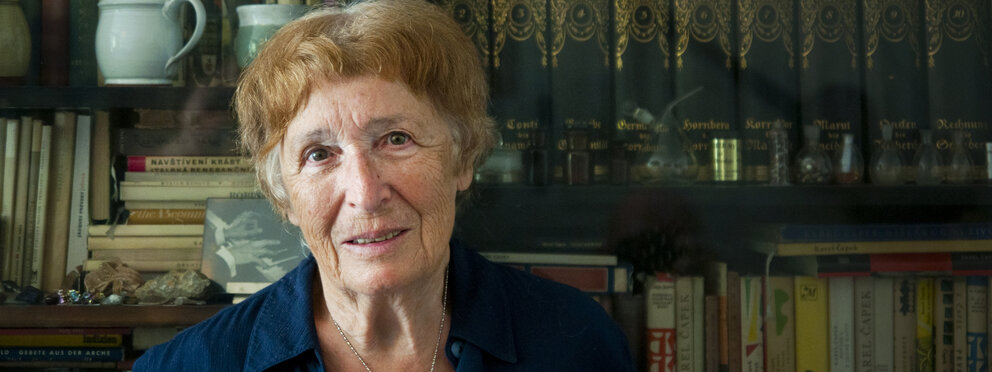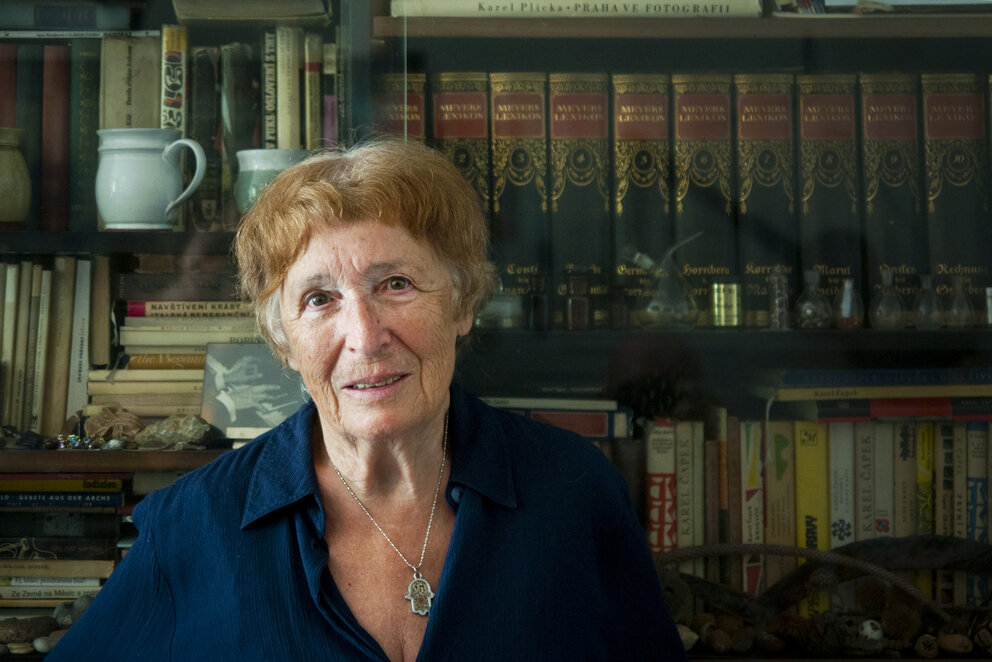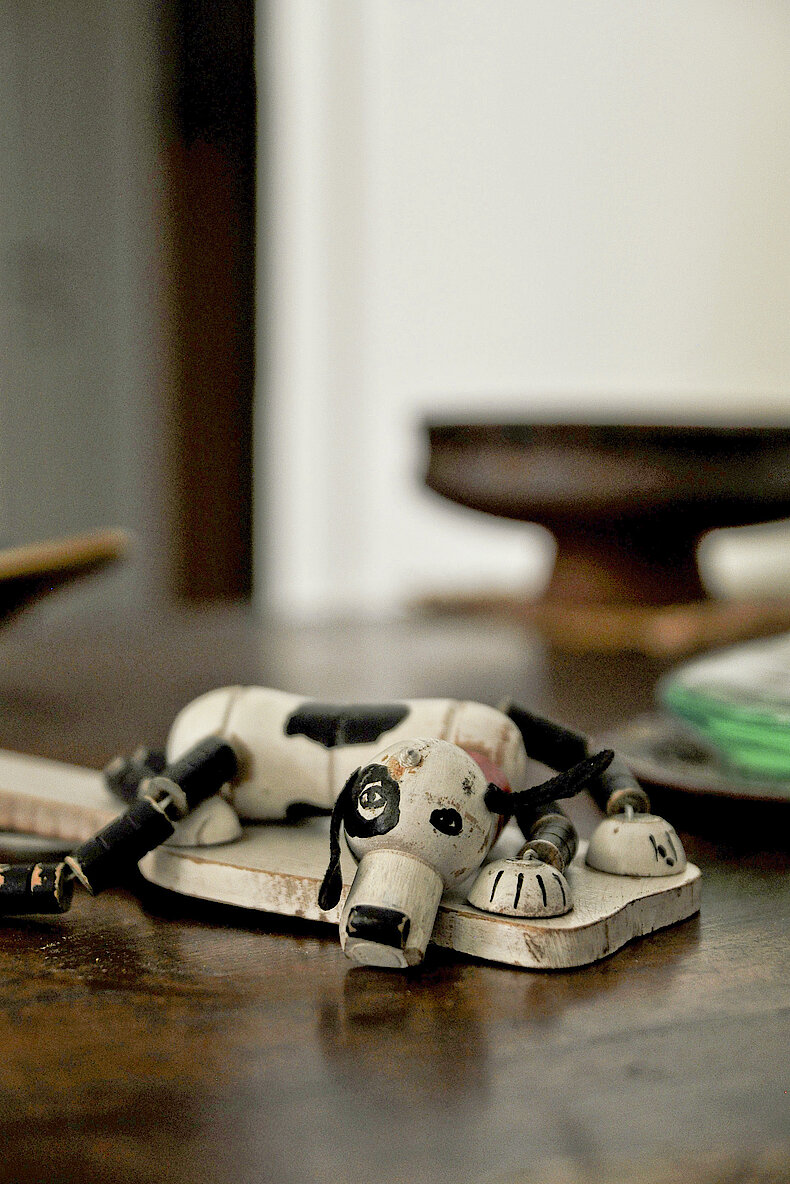
Michaela Vidláková
About Michaela Vidláková
Michaela Vidláková was born Michaela Lauscher in Prague in 1936. She had a happy childhood there until 1938. The life of the Jewish child changed with the German occupation: She was no longer allowed to play with non-Jewish children, shopping could only be done at a certain time and finally the family had to leave their home and move into a small flat. In December 1942, the entire family was deported to Theresienstadt. They were imprisoned there until the end of the war. Despite a serious illness and only due to a few lucky coincidences did she and her parents survive. They were liberated by the Red Army in 1945. Today, Mrs Vidláková tells her story in schools and at universities.
"Because the important thing is not just to know about it, but to do something about it. And the dangerous thing is those who know it's bad but do nothing. They keep quiet and look elsewhere."

A picture to live on
When we asked Michaela Vidláková what helped her to carry on after the war, she jumped up happily and showed us a wooden dog called Pluto. Her father had carved it for her fifth birthday. We didn't expect the story behind why Pluto had helped her: When the family was sent to the Theresienstadt concentration camp, carpenters were wanted. Michaela's father showed the dog and got a good job, which ultimately saved her family's lives. Michaela adopted her father's courage and ingenuity for her own life and managed to shape her own future after the war, study and start a family. To this day, the dog itself is a reminder of her father, who, together with her mother, gave her support and a sense of normality even after the end of the war. She herself finally formulated her thoughts on the subject of living on with the words: "For the child: I have parents, I go to school, I have mates, the future is here, I'm alive, I'm alive! What more could I want?"

Our encounter
We had the honour of visiting Michaela Vidláková in Prague for an interview. When we arrived, a friendly and confident woman stood before us. She greeted us with a light handshake and politely and excitedly showed us into her living room. The first thing that caught our eye was a collection of stones, which she herself calls her "rock garden". Each stone is a reminder of a journey. The quantity of stones is particularly impressive. It shows how much Mrs Vidláková experienced in her life after 1945. After she had refused our help to prepare an orange juice spritzer - "I can still cook that much" - we all sat down together and the interview could begin.
We listened to her stories with excitement and emotion. Mrs Vidláková's cheerful aura fascinated us. She always had a joke on her lips - as long as the story allowed it. She has found an impressive peace with her life story and her fate. She took us through her life story step by step, remembering every last detail.
As we left her flat, she emphasised once again how happy she was to have us visit. "You are a gift because you are carrying on my story." It is precisely these moments that emphasise time and again how important our work is.
